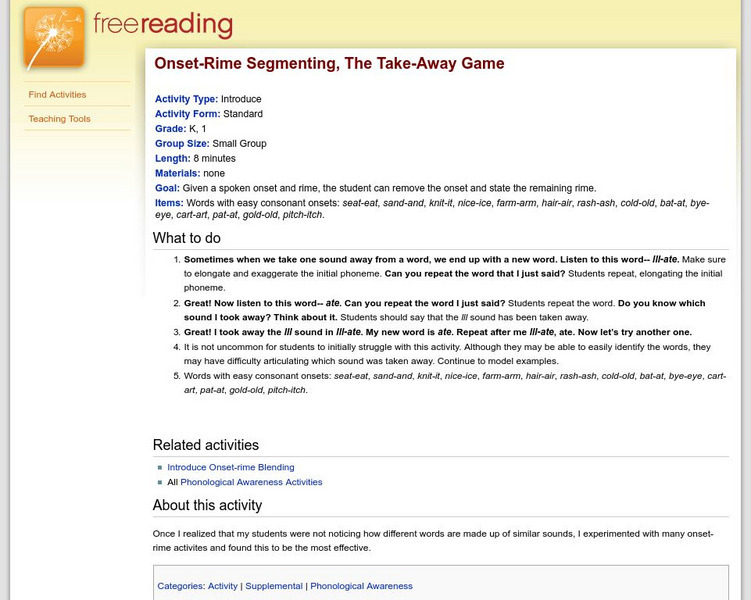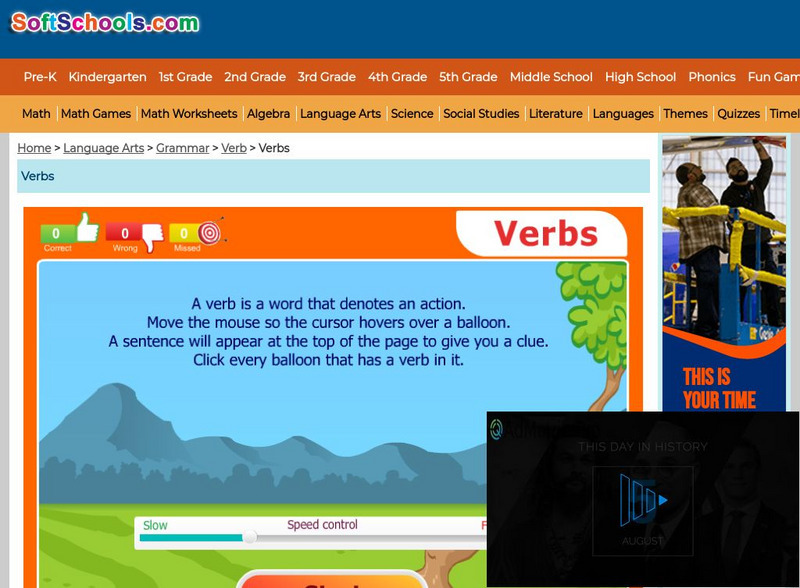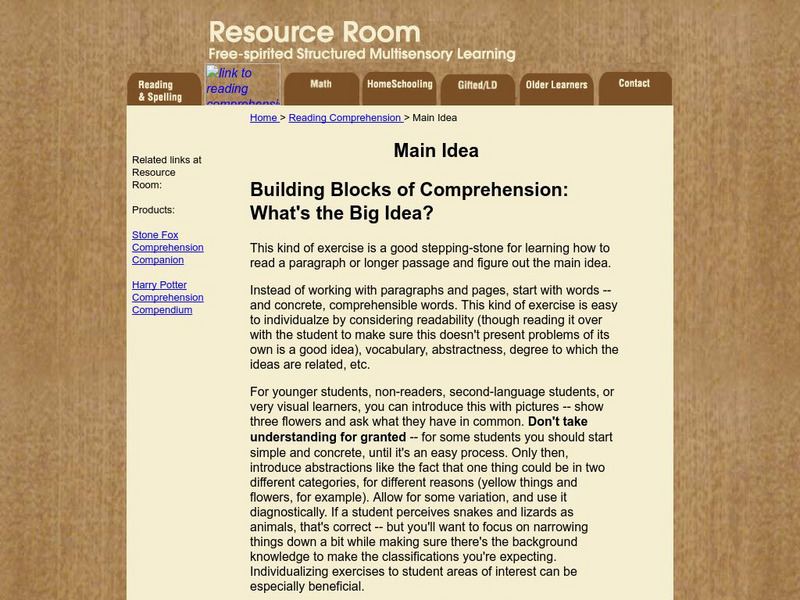Free Reading
Free Reading: Find the Rhyme: Identifying and Generating Rhyming Words
A game in which students are given a word and must hunt around the classroom for a word that rhymes with it.
Courseware Solutions
Wordville: Compound Words
This interactive language arts skill-building site provides a fun activity for creating compound words. Challenge student understanding of compound words and engage in the creation of compound words.
Other
Ki Co4 School English: Compound Words
This is a self-scoring matching game in which pairs of words are matched to form compound words.
Big Learners
Biglearners.com: ccss.ela literacy.rf.2.3.c : Second Grade English Language Arts
Here is a printable learning game for core standard RF.2.3.C. A brief description of the game is on the widget. Click on the images to view, download, or print them. All pages are free for individual and non-commercial use.
Free Reading
Free Reading: Rhyme Around Baseball Activity
An exciting version of baseball to build fluency in creating rhyming words. The classroom is divided into two teams; when one team is up to bat the first student is given a word family such as -at. They must create a rhyming word and...
Other
Ez School: Common Compound Words: Elephant Crossing
In this game, students read a clue and select two words that form a compound word fitting the clue. If they are correct, two elephants push the two words together to form the compound word. There are 10 sets of 20 questions each.
ICT Games
Ict Games: Dinosaur's Eggs: High Frequency Words
Choose from a list of high frequency words then listen to the word and choose the correct egg that spells that same word. When finished, receive a certificate with words you know well and others you need to work on. Perfect practice for...
Free Reading
Free Reading: The Take Away Game: Onset Rime Segmenting
A classroom activity led by the instructor. The student is given a spoken onset and rime, and learns to remove the onset and state the remaining rime.
Free Reading
Free Reading: Make a Big Book of Rhymes: Identifying and Generating Rhyming Words
In this teacher-led activity on this site, students work together in the classroom creating a book full of rhymes.
Other
Ez Games: Games for Preschool Grade 2
Contains a number of games appropriate for preschool through grade one that focus on developing vocabulary and spelling skills. Includes games that ask students to match rhyming words, match from memory, match pictures to words, and more.
Soft Schools
Soft Schools: Balloon Verb Game
Fun game that challenges students to choose which words are verbs. Exercise students' abilities to identify verbs.
Free Reading
Free Reading: Guess What I'm Thinking?: Initial Sound Accuracy
A version of the "20 Questions" game. The instructor tells the class he is thinking of something that starts with, for example, /b/. The students have to come up with what the teacher is thinking of.
Other
Introduce Vocabulary: My School's a Zoo
A unique and flexible way to introduce vocabulary. The instructor introduces three new words to the class, then as the book My School's a Zoo by Stu Smith, is read, the students raise their hands when they hear the new words. The...
Free Reading
Free Reading: Finish My Sentence: Oral Blending Accuracy Activity
In this classroom activity, the instructor creates a list of simple sentences that include a three or four letter word that the students are asked to blend. The instructor says the sentence and asks the student to help blend the letters...
Fun Brain
Fun Brain: Spell Check
Students are presented with four words. After choosing the incorrectly spelled word, students make corrections and check their answers. There is an option for more difficult words.
Quia
Quia: Synonym Match Up
This is a matching and memory game in which students match synonyms while remembering their location. Java is required.
Quia
Quia: Super Synonyms Match Up
These matching games challenge student understanding synonyms and aid in expanding vocabulary.
Other
Resource Room: What's the Big Idea?
This exercise can be used to help students develop understanding of main idea and supporting details. Students are given a list of words to analyze, decide the theme and write a common subject that defines the group.













